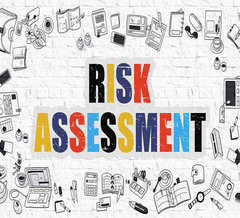Risk, Root Cause Analysis & Problem Solving for Business Improvement
- Description
- Curriculum
- Reviews
INTRODUCTION
Effectively managing risk and resolving operational challenges are critical capabilities for maintaining business continuity, improving performance, and enhancing organizational resilience. In fast-moving and increasingly complex environments, businesses face growing pressure to anticipate threats, address recurring problems, and prevent costly disruptions. Achieving this requires a structured approach to identifying root causes, evaluating risks, and implementing sustainable solutions.
This course is designed to build a practical foundation in modern risk management and structured problem-solving. It goes beyond identifying surface-level symptoms by introducing proven frameworks for root cause analysis (RCA), including both qualitative and quantitative methods. Participants will learn how to apply logical, evidence-based approaches to tackle persistent issues and make informed decisions under pressure.
A key component of the program includes understanding the interrelationship between risk, non-conformities, and recurring operational failures. The course emphasizes the importance of proactive thinking, systems analysis, and early warning signals in improving both risk mitigation and response capabilities.
Participants will also explore tools such as Failure Mode and Effects Analysis (FMEA), 5 Whys, Fault Tree Analysis (FTA), and Pareto techniques, while applying these to real-world case studies. These tools help assess the root causes of incidents, minimize recurrence, and strengthen long-term corrective actions.
COURSE OBJECTIVES
Participants will be able to:
• Identify and assess various types of operational and strategic risks.
• Apply structured approaches to risk mitigation and decision-making.
• Use root cause analysis tools to isolate the origin of recurring problems.
• Differentiate between symptoms and underlying causes of business issues.
• Apply frameworks such as 5 Whys, Fishbone Diagrams, and FMEA.
• Develop and implement practical corrective and preventive action plans.
• Strengthen team-based collaboration during incident reviews and problem resolution.
COURSE OUTLINE
Module 1: Foundations of Risk and Problem Management
• Defining risk in the context of operations and strategy
• Understanding types of risks: operational, reputational, financial, compliance
• Differentiating between problems, risks, and incidents
• The impact of unmanaged risks on performance and reputation
• Role of leadership in proactive risk management
Module 2: Introduction to Root Cause Analysis (RCA)
• Key principles of RCA
• Symptom vs. cause: How to differentiate
• Benefits of structured RCA in performance improvement
• When to conduct a root cause analysis
• Overview of major RCA tools
Module 3: RCA Tools and Techniques
• The 5 Whys Method: Process and application
• Fishbone (Ishikawa) Diagrams for cause categorization
• Pareto Analysis for prioritizing problem areas
• Fault Tree Analysis (FTA) for systems-level issues
• Barrier Analysis and Change Analysis
Module 4: Practical Risk Assessment Methods
• Risk identification techniques (brainstorming, checklists, historical data)
• Risk evaluation and prioritization using risk matrices
• Introduction to Failure Mode and Effects Analysis (FMEA)
• Risk control planning and implementation
• Communicating risk findings across departments
Module 5: Problem Solving and Decision Making
• Structured problem-solving cycles (PDCA, DMAIC)
• Defining problems clearly and setting objectives
• Generating and evaluating alternative solutions
• Decision-making under uncertainty
• Facilitating effective problem-solving workshops
Module 6: Corrective and Preventive Actions (CAPA)
• Writing effective corrective and preventive action plans
• Ensuring accountability and follow-through
• Measuring impact and sustainability of actions
• CAPA in audit and compliance environments
• Integrating CAPA into management systems
Module 7: Embedding a Culture of Continuous Improvement
• Leadership’s role in supporting improvement initiatives
• Encouraging open reporting and learning from failures
• Building organizational maturity in RCA and risk thinking
• Aligning problem-solving with strategic goals
• Case studies on successful implementation
TARGET AUDIENCE
This course is tailored for professionals and leaders responsible for ensuring business continuity, managing quality and compliance, and leading operational excellence. Ideal participants include:
• Quality and Risk Managers
• Operations and Production Managers
• Health, Safety & Environmental (HSE) Officers
• Process Improvement Specialists
• Auditors and Compliance Officers
• Engineers and Technical Supervisors
• Team Leads involved in problem-solving and investigations
• Business Continuity and Project Managers
Duration: 1 week
Venue: Kenya
Date: Open




